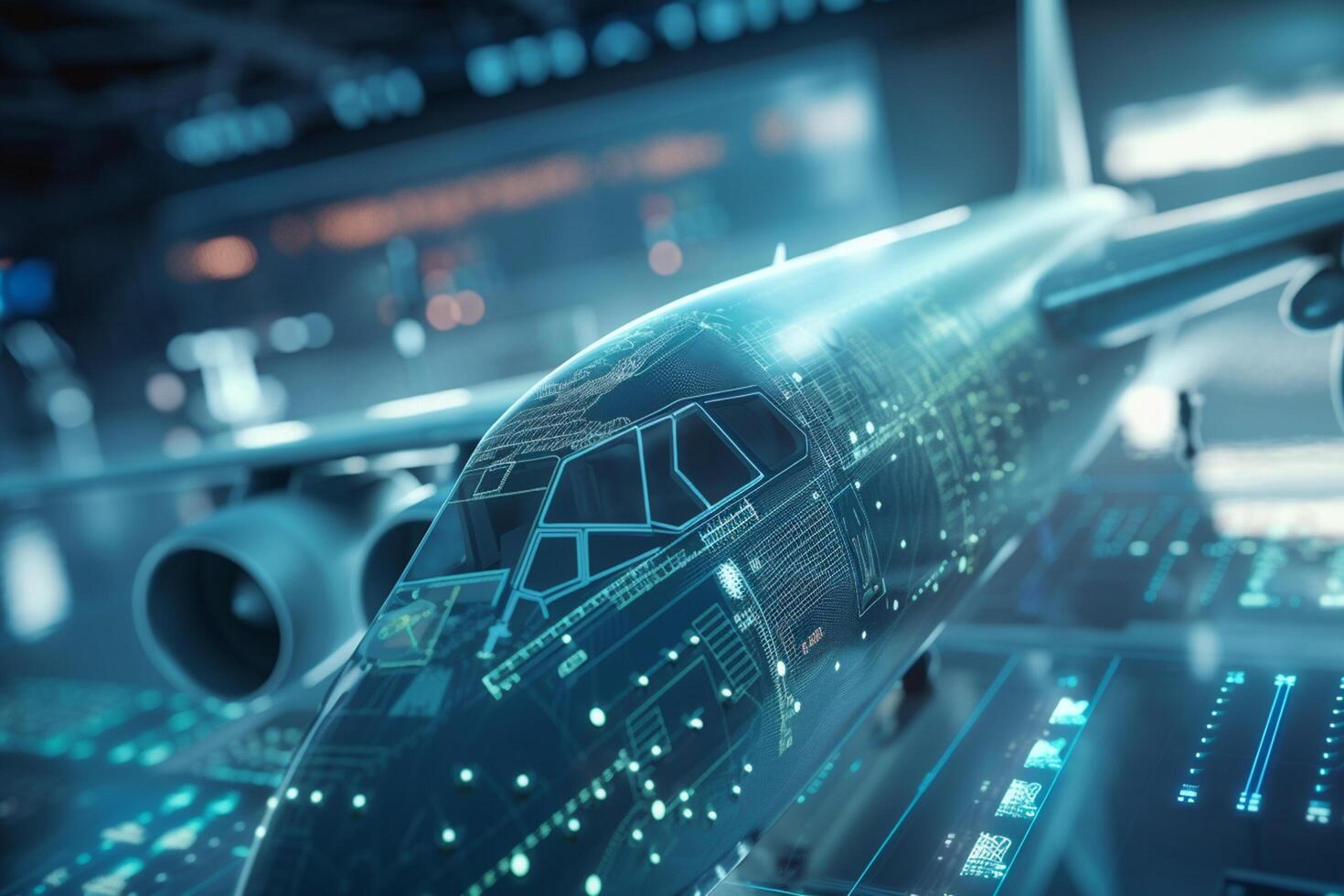In recent years, the aviation industry has witnessed a remarkable transformation with the advent of AI-powered flight control systems. These advanced systems are redefining the way aircraft are flown, making air travel safer, more efficient, and more reliable. By leveraging artificial intelligence, flight control systems can process vast amounts of data in real-time, allowing for precise decision-making that was once unimaginable. As aerospace enthusiasts, understanding these AI-driven innovations provides a glimpse into the future of aviation.

The Evolution of Flight Control Systems
Traditionally, flight control systems have relied on mechanical and hydraulic systems to manage an aircraft’s flight path. However, with the integration of AI technology, these systems are now capable of learning and adapting to various flight conditions. This evolution marks a significant shift from conventional methods to more sophisticated, intelligent solutions.
Key Features of AI-Powered Flight Control
Real-Time Data Processing
One of the most significant advantages of AI-powered flight control systems is their ability to process data in real-time. By analyzing information from various sensors and external sources, these systems can make instantaneous adjustments to flight parameters, optimizing performance and safety.
Predictive Maintenance
AI systems can predict potential issues before they occur, enabling proactive maintenance that minimizes the risk of in-flight failures. This predictive capability not only enhances safety but also reduces operational costs by preventing unscheduled repairs and downtime.
Enhanced Autopilot Capabilities
With AI integration, autopilot systems have become more sophisticated, capable of handling complex flight scenarios with minimal human intervention. This advancement allows pilots to focus more on strategic decision-making, knowing that routine tasks are efficiently managed by the AI.
Benefits to the Aviation Industry
Improved Safety
Safety is paramount in aviation, and AI-powered flight control systems significantly enhance safety standards. By continuously monitoring flight conditions and making real-time adjustments, these systems help prevent accidents caused by human error or unforeseen circumstances.
Increased Efficiency
AI systems optimize fuel consumption and flight paths, leading to more efficient operations. Airlines can save on fuel costs and reduce their carbon footprint, contributing to a more sustainable aviation industry.
Enhanced Passenger Experience
With smoother flights and fewer delays, passengers enjoy a more pleasant travel experience. AI systems also enable airlines to offer personalized services based on passenger preferences, further enhancing customer satisfaction.
Challenges and Considerations
Integration with Existing Systems
While the benefits of AI in aviation are clear, integrating these new technologies with existing systems poses challenges. Ensuring compatibility and seamless operation requires significant investment and technical expertise.
Data Security
As AI systems rely heavily on data, ensuring the security and privacy of this information is critical. Aviation companies must implement robust cybersecurity measures to protect against potential threats.
Regulatory Compliance
Regulatory bodies must develop and enforce guidelines for the use of AI in aviation to ensure safe and ethical implementation. Collaboration between industry stakeholders and regulators is essential to establish standards that keep pace with technological advancements.
Future Prospects
The future of AI-powered flight control systems is promising, with ongoing advancements poised to revolutionize air travel further. As machine learning algorithms continue to improve, we can expect even greater levels of automation, efficiency, and safety in aviation.
Related Innovations in Aerospace
Beyond flight control systems, AI is making waves across the aerospace sector. For instance, AI in Cabin Monitoring enhances passenger comfort, while AI in Weight Distribution ensures optimal aircraft balance. Additionally, Machine Learning in Flight Tests aids in analyzing critical flight data, contributing to overall safety and performance improvements.
Conclusion
As we embrace the potential of AI-powered flight control systems, the aviation industry stands at the cusp of a new era. These systems not only enhance safety and efficiency but also pave the way for a more sustainable and enjoyable flying experience. By continuing to innovate and address challenges, the future of aviation looks incredibly bright.

FAQ
What are AI-powered flight control systems?
AI-powered flight control systems are advanced technologies that use artificial intelligence to enhance the operation and management of aircraft, providing real-time data processing and decision-making capabilities.
How do AI systems improve flight safety?
AI systems improve flight safety by continuously monitoring flight conditions, predicting potential issues, and making real-time adjustments to prevent accidents caused by human error or unforeseen circumstances.
What challenges do AI-powered flight control systems face?
Challenges include integrating with existing systems, ensuring data security, and meeting regulatory compliance standards. Addressing these issues is crucial for the successful implementation of AI in aviation.

